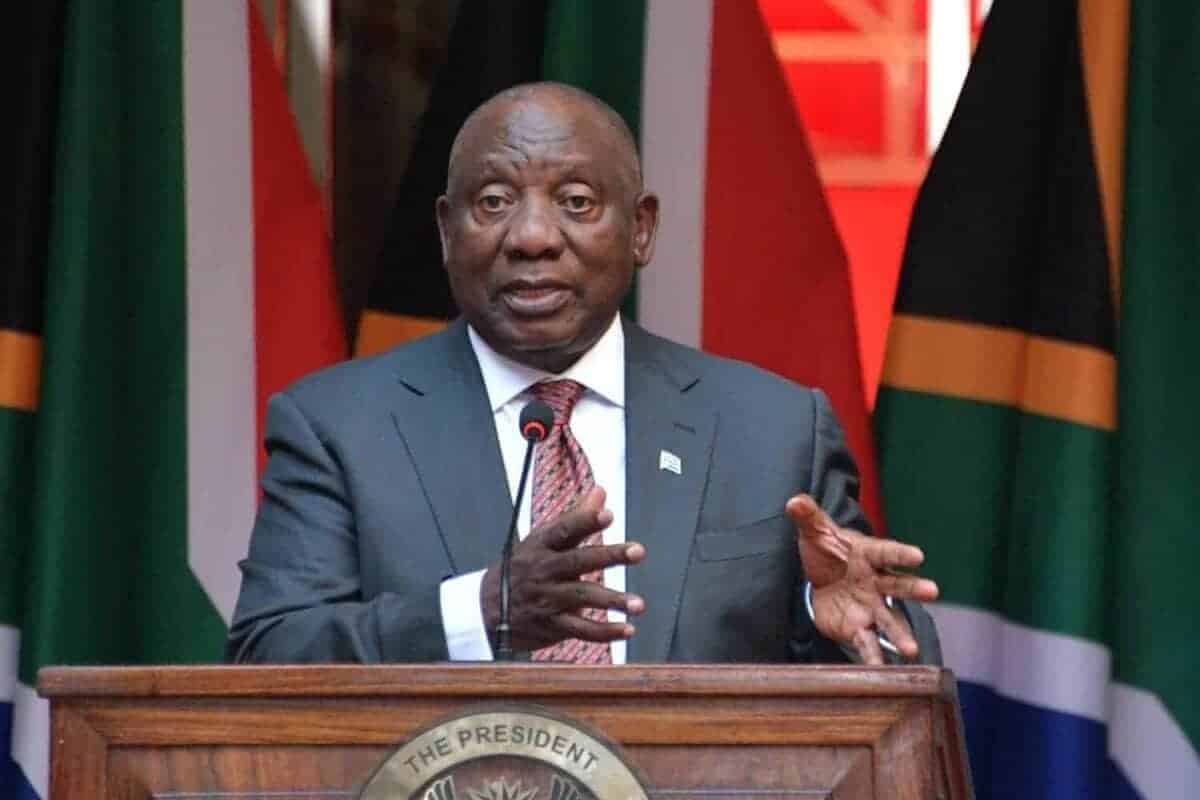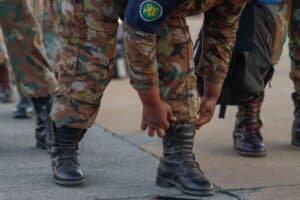The ANC and MTN Group are like debris circling a plughole.

The ANC and MTN Group are like debris circling a plughole. Both are caught in the vortex of an Iranian whirlpool unleashed by the US.
The liberation movement and the telecoms giant are beginning to grasp the steep costs of their embrace of Tehran. The diplomatic fiasco of SA’s defence chief pledging political and military solidarity with Iran against the US and Israel was no impulsive slip by a rogue general.
It reflects a pattern in which, many believe, Tehran rewards its political allies with covert funding and commercial partners with privileged access to deals. It is still unclear whether General Rudzani Maphwanya’s actions were a calculated signal from the ANC-led government of national unity (GNU) to Washington, or a case of bad timing.
Many commentators, along with the DA, have labelled him a “rogue general” demanding his early retirement, resignation, or cashiering. But the evidence suggests he is no outlier.
The flurry of contradictory statements from the departments of defence and international relations (Dirco) and the Presidency paints the following picture: while the military does not set foreign policy, the general’s views were consistent with those of Defence Minister Angie Motshekga, Dirco Minister Ronald Lamola and President Cyril Ramaphosa.
ALSO READ: How will Ramaphosa deal with SA’s foreign policy nightmare?
The misstep lay in the timing and the language he used. The Presidency described the trip as “ill-advised” and lamented that the general had not been “more circumspect”. Crucially, it did not disavow his sentiments. Motshekga was spirited: there was “nothing rogue” about the visit, which she had authorised in 2024, and the general had “done nothing wrong”.
The SA National Defence Force controversy shows the ANC’s recklessness in Iran and Monday 10 25 August 2025 MTN’s growing woes in the US reveal the structural depth of our entanglement with Tehran. This week, the US launched a grand jury investigation into MTN’s conduct in Iran, triggering a share price crash that at one point wiped out R30 billion in shareholder value.
MTN already faces four US Anti-Terrorism Act civil damages lawsuits from families of US soldiers killed or injured in Iranian-backed terrorist attacks in neighbouring Iraq and Afghanistan. Turkish telecoms rival Turkcell is also pursuing a landmark case in South Africa, claiming MTN used bribery and corruption to edge it out of Iran’s first private cellphone licence.
Turkcell went further in a US filing, alleging MTN leveraged “high-level political influence within the SA government” to back Iran’s nuclear position at the International Atomic Energy Agency (IAEA). At the time, MTN’s chair was Cyril Ramaphosa. Its current chair, Mcebisi Jonas, also happens to be Ramaphosa’s special envoy to the US.
MTN is playing it down, dismissing the affair as legacy “noise”. The group also leans heavily on an independent investigation it commissioned more than a decade ago, which found no evidence supporting the bribery and IAEA claims.
But MTN should not be too cocky. Grand juries approve indictments in 98% of cases. For MTN, the implications are stark. If convicted for providing material support to terrorism, it would face crippling fines, exclusion from the US market and possible disconnection from global financial systems.
From the halls of the Presidency to corporate boardrooms, party loyalty, kinship ties, and mutual back-scratching are the norm. But mounting turbulence with the US is fraying these cosy cabals. As the flotsam and jetsam swirl, South Africa faces a reckoning just beginning to unfold.
ALSO READ: SANDF chief Maphwanya submits report on controversial Iran trip [VIDEO]
Support Local Journalism
Add The Citizen as a Preferred Source on Google and follow us on Google News to see more of our trusted reporting in Google News and Top Stories.








